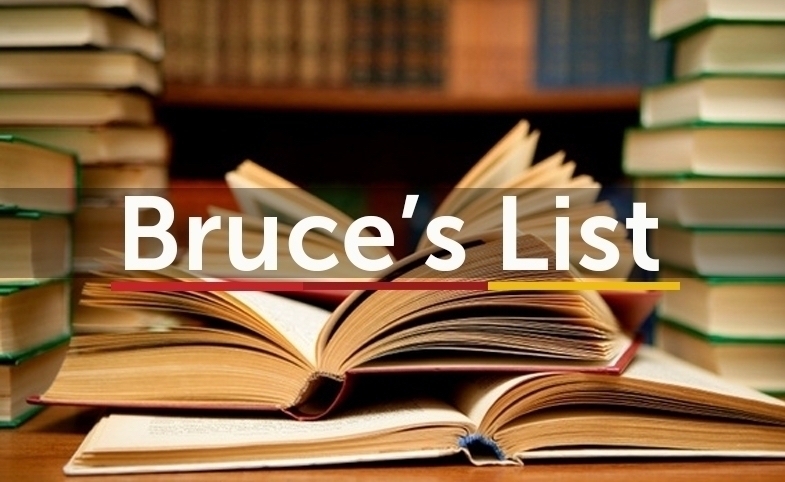
Latest Must-Reads in Public Diplomacy: January 2022
CPD Faculty Fellow Bruce Gregory has compiled a list of the latest must-reads in public diplomacy. Known affectionately at CPD as "Bruce's List," this list is a compilation of books, journal articles, papers and blog posts on a wide variety of PD topics.
Highlights from the latest list include:
R.S. Zaharna, “The Pandemic’s Wake-up Call for Humanity-Centered Public Diplomacy,” Place Branding and Public Diplomacy, October 27, 2021. Zaharna (American University), makes several claims in this essay. The pandemic reveals a growing gap between “state-centric” and “humanity-centric” public diplomacy, a concept which she develops in her new book, Boundary Spanners of Humanity (Oxford, forthcoming). State-centric public diplomacy fails, she contends, because its “individual-level, power-focused, and competitive perspective” is unable to meet the collaborative requirements of the concerns of global publics about the “growing frequency and severity of crises affecting humanity.” Public diplomacy actors need to move beyond listening as gathering information to a “perspective-taking” that processes information from a humanity-level perspective.
Corneliu Bjola, “Digital Diplomacy as World Disclosure: The Case of the COVID-19 Pandemic,” September 9, 2021, Place Branding and Public Diplomacy. The arrival of the COVID-19 pandemic took world diplomats by surprise, partly because of the novelty of the situation and partly because of the speed with which the pandemic travelled around the world. Drawing on the concept of world disclosure, the paper argues that MFAs’ digital responses to the pandemic offer an excellent analytical lens for understanding how MFAs have made sense and reacted to the crisis. By examining the tweets posted by German diplomats in the early stage of the pandemic, the paper finds that the German MFAs moved slowly in sensing the nature and severity of the crisis, but it then managed to regroup and formulate a credible strategy to balance its domestic priorities and international responsibilities.
Ilan Manor, “Effective Government Communication During Covid19: What Governments Can Learn from Diplomats,” October 26, 2021; “What Are the Future Challenges for Digital Diplomacy?” September, 9, 2021, DigDipBlog.com. Manor responds to three questions on the past, present and future practice of digital diplomacy: How have areas of focus and priorities in digital diplomacy changed over time and what are some of the key issues going forward? How do practitioners begin their journeys in digital diplomacy? How is digital diplomacy practiced and what changes in practice can we observe over time?
Michele Acuto, Anna Kosvac, and Kris Hartley, “City Diplomacy: Another Generational Shift,” Diplomatica, 3 (2021), 137-146. Michele Acuto (Melbourne University) writes often and thoughtfully about concepts and practice in city diplomacy. In this article, he and his colleagues Anna Kosvac (Melbourne University) and Kris Hartley (University of Hong Kong) examine generational shifts in city diplomacy and new ways of understanding a domain in governance and diplomacy that remains an academic niche. They argue the COVID-19 pandemic is opening a new window into city diplomacy, raising interesting questions about its relevance to complex global problems and different diplomatic styles. They point to opportunities for multidisciplinary research and provide a helpful literature survey. Importantly, they address boundaries and gray areas between city diplomacy, city networks, and global urban governance.
The full list for this edition of Bruce's List can be found here.
Visit CPD's Online Library
Explore CPD's vast online database featuring the latest books, articles, speeches and information on international organizations dedicated to public diplomacy.
Popular Blogs
-
January 29
-
January 20
-
January 28
-
February 6
-
January 8







